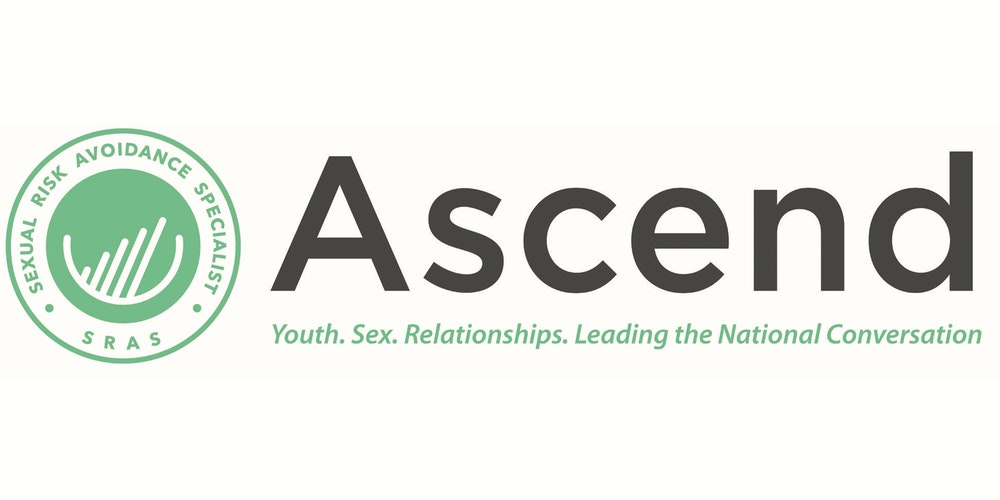
Ascend is a premier advocacy organization that promotes SRA, or Sexual Risk Avoidance, educational programs. “Ascend is the nation’s leader in the SRA field. For over a decade, we have helped thousands of America’s youth make smart, forward-thinking choices about their sexual behavior.” Effective communication of these positive choices was the focus of this year’s Youth Leadership Summit, held in Washington D.C.
Ascend promotes SRA programs as opposed to SRR, Sexual Risk Reduction, programs like Comprehensive Sex Education (CSE). SRR programs are rapidly being mandated in states around the country. It is crucial to understand the difference between the two in order to effectively engage in this debate.
A main difference is that the information provided to students through SRR programs can only reduce the risk of contracting sexually transmitted infections and diseases whereas SRA programs offer information to avoid all risk. To completely avoid risk you must be able to do so with 100%, foolproof certainty, and abstinence from sexual activity is the only choice that fits this description. This is the same approach that has been implemented for smoking, alcohol use, and drug use and has proven successful. The only way to reduce all associated health risks of these substances is to avoid them completely. If the answer is exactly the same for sexual activity, why is this approach not being taught to our youth?
CSE programs and instructors have also been proven to hastily glaze over the parts on abstinence within their programs, because ‘nobody wants to do that anymore,’ and then spend infinitely more time discussing the countless contraceptive methods that exist. Contraceptive methods that can only reduce the risk for youth. SRA programs, while still presenting valid contraceptive information, spends a more accurate and fair amount of time discussing how abstinence from sexual activity eliminates all risk and is a healthier option, overall, for young adults.
SRA programs, not SRR programs, truly offer students a comprehensive, informational approach because the curricula devote adequate time to both sides of the topic. CSE programs should not be deemed ‘comprehensive’ when they fail to touch on abstinence as a valid option. SRA encourages abstinence for youth, supported by current data and research, and promotes it as the best option for optimal sexual health. Not only does it eliminate physical risk, but it helps to eliminate the mental, emotional, and socioeconomic consequences of unbridled sexual activity.
Recorded statistics on the Teen Pregnancy Prevention (TPP) program, another example of SRR education, show just how ineffective it is for today’s youth. Just under $1 billion in tax dollars has been given to the funding of this program since 2010, yet 80% of students emerged in exactly the same or worse conditions relative to peers who did not receive this education. This information was provided by the Department of Health and Human Services.
In fact, Ascend highlights, via CDC research, that close to 70% of 15-17 year olds are abstaining from sexual activity. Another study, the 2017 Youth Risk Behavior Survey, reported that over 60% of high school students are not sexually active. These are important statistics because they show how SRA programs can better cater to the majority of youth instead of coaching them, as CSE programs do, on how to safely engage in behavior that most are avoiding.
One SRA educator who works closely with PFI on this issue said that “46% of students who completed the Healthy Relationships/Sexual Risk program that I represent reported a change in their thinking about sexual activity. Individual students have also told me that the content and classroom activities have assisted them in their commitment to sexual self-discipline.” When kids are given accurate information, healthier alternatives, and are not treated as sexual animals, they are capable of making wise decisions for themselves.
However, swiftly unravelling the good work of these SRA programs are states like California, Colorado, Washington, and North Carolina that have already or are working toward mandating CSE programs in schools through the Healthy Youth Act. The SRA message is or will be excluded from the classroom, explicit curriculum content shown as early as kindergarten, and specific emphasis given to the acceptance of LGBTQ youth and gender identity/expression.
“Not everything under the sun needs to be taught to our kids, with no moral judgment,” stated Greg Burt, Director of California Family Council. Thousands of parents agree with this statement. Not only do SRA programs support moral judgment, which is important to so many, but they communicate a message of optimal health for youth that many would get behind if they truly investigated the failings of CSE programs.
Ascend encourages active parental involvement in their child’s education. It advocates for a truly comprehensive approach, focusing on the certainty of risk avoidance through abstinence, and the removal of explicit curricula from schools. Ascend encourages parents to ask the question: “how much should schools be able to teach my children?”
Be informed, and be a part of the movement for a healthier youth culture in America.
Posted by Madison Graner, Summer 2019 intern.





Nice job Maddie!
Like your quotes:)